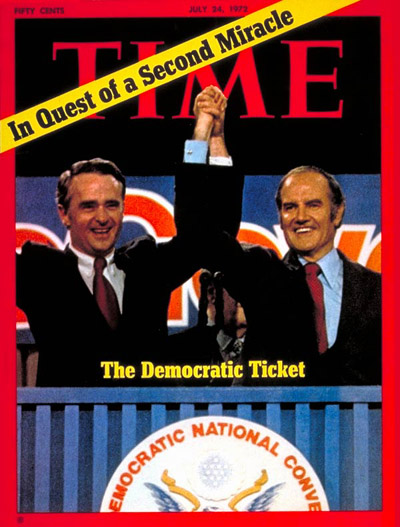
Word of the Day: Labile
Today’s word of the day, courtesy of the Word Guru, is labile. Pronounced / ˈleɪ baɪl / or / ˈleɪ bəl /, this adjective means “apt or likely to change” or “(in chemistry, biology, psychiatry, etc.) able or likely to change or break down easily, rapidly, or continually; unstable” (https://www.dictionary.com/browse/labile). Etymonline.com says that it first appears in the English language in the “mid-15c., ‘prone to lapse,’ from Latin labilis, from labi ‘to slip’ (see lapse (n.)). Hence, in chemistry, ‘prone to undergo displacement’ (c. 1600)” (https://www.etymonline.com/word/labile).
Merriam-Webster says, “Labile was borrowed into English from French and can be traced back (by way of Middle French labile, meaning ‘prone to err’) to the Latin verb labi, meaning ‘to slip or fall.’ Indeed, the first sense of labile in English was ‘prone to slip, err, or lapse,’ but that use is now obsolete. Other labi descendants in English include collapse, elapse, and prolapse, as well as lapse itself” (https://www.merriam-webster.com/dictionary/labile).
On this date in 1972, “Senator Thomas Eagleton withdraws as the Democratic vice-presidential candidate at George McGovern’s request after news that Eagleton sought treatment for depression becomes public” (https://www.onthisday.com/events/july/31).
Thomas Francis Eagleton (1929-2007) was born in St. Louis. His father was somewhat of a politician, having run for mayor. He graduated from Amherst College and Harvard Law School, worked for his father’s law firm, and then went into corporate law for Anheuser-Busch (https://en.wikipedia.org/wiki/Thomas_Eagleton).
In 1956, he was elected to the position of City Attorney in St. Louis, and four years later won the race to be Attorney General of the state of Missouri at just 31 years old. In 1964, he was elected Lieutenant Governor of the state, serving under Governor Warren E. Hearnes who, like Eagleton, was a member of the Democrat Party.
During the 1960s, Eagleton admitted himself to hospitals on three separate occasions “for physical and nervous exhaustion, receiving electroconvulsive therapy (shock therapy) twice. He later received a diagnosis of bipolar II from Frederick K. Goodwin” (ibid.). Despite the mental health issues, he “won a U.S. Senate seat in 1968, unseating incumbent Edward V. Long in the Democratic primary and narrowly defeating Congressman Thomas B. Curtis in the general election” (ibid.). He was just 39 years old, and he was a rising star in the Democrat Party. He stayed in the U.S. Senate until 1987, when he left after having chosen not to run again. He was replaced by the Republican Kit Bond.
But in 1972, George McGovern chose Thomas Eagleton to run with him for the highest offices in the land. McGovern was one of the most liberal senators in the Senate, but he had won the Democrat nomination in large part because the Vietnam War had become extremely unpopular and McGovern was an outspoken opponent of the war. Because of his outspokenness, a number of possible Democrats refused to accept the position as running mate. “Senator Gaylord Nelson (who was among those who declined) suggested Eagleton. McGovern chose Eagleton after only a minimal background check, as was customary for vice-presidential selections at the time. Eagleton did not mention his hospitalizations, and in fact decided with his wife to keep them secret from McGovern while he was flying to his first meeting with McGovern” (ibid.).
Then, on July 25, 1972, this: “Senator Thomas F. Eagleton, the Democratic Vice‐Presidential nominee, said here today that he was hospitalized three times between 1960 and 1966 for “nervous exhaustion and fatigue” and that he had undergone psychiatric treatment, including electric shock therapy, for “depression” on two of the three occasions.
The 42‐year‐old Missourian volunteered a review of his medical history before a surprised news conference this morning at the vacation retreat of his running mate, Senator George McGovern of South Dakota” (https://www.nytimes.com/1972/07/26/archives/eagleton-tells-of-shock-therapy-on-two-occasions-says-he-was-in.html).
Initially, McGovern “acknowledging that he had not been aware of his running mate’s earlier difficulties when he chose him at Miami Beach 11 days ago, said he would have picked him anyway. ‘There is no one sounder in body, mind and spirit than Tom Eagleton,’ he said.
Later, in response to questions about whether he had made ‘an irrevocable decision’ to keep Mr. Eagleton on the ticket, Mr. McGovern replied, ‘Absolutely’” (ibid.).
But it took less than a week for McGovern to change his mind. Part of the issue was that the Republicans attacked McGovern for his poor judgment and his not vetting Eagleton. Part of the issue was the Eagleton had withheld the information from McGovern’s campaign, leading to the surprise moment. But to a large extent, the problem was that in 1972 many Americans knew very little about depression, or mental fatigue, or electroshock therapy, and people were afraid of having someone with severe mental health problems so close to the presidency.
Whether one agrees with Eagleton’s politics or not, the truth about the individual is that he was fine for fifteen more years in the Senate, and today we recognize that depression and even bipolar disorder can be maintained by appropriate medical care. Still, people feared that Eagleton would be labile.
By the way, McGovern lost the presidential race to the incumbent Richard Nixon by one of the biggest landslides in American political history. It is unlikely that Eagleton’s presence on the ticket would have made a difference.
Today’s image is the cover of Time Magazine the day before Eagleton’s medical history became public knowledge (https://content.time.com/time/covers/0,16641,19720724,00.html). It may have been his finest moment.